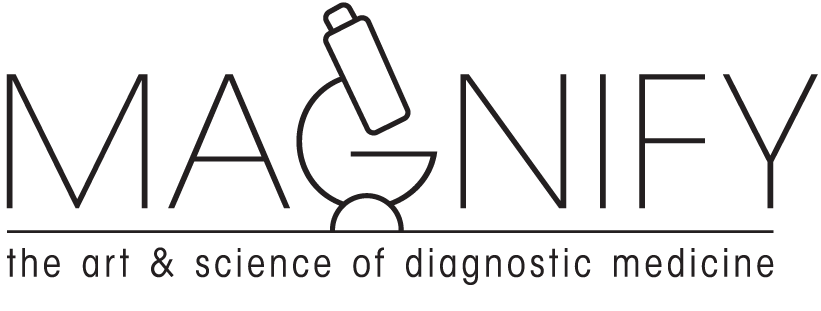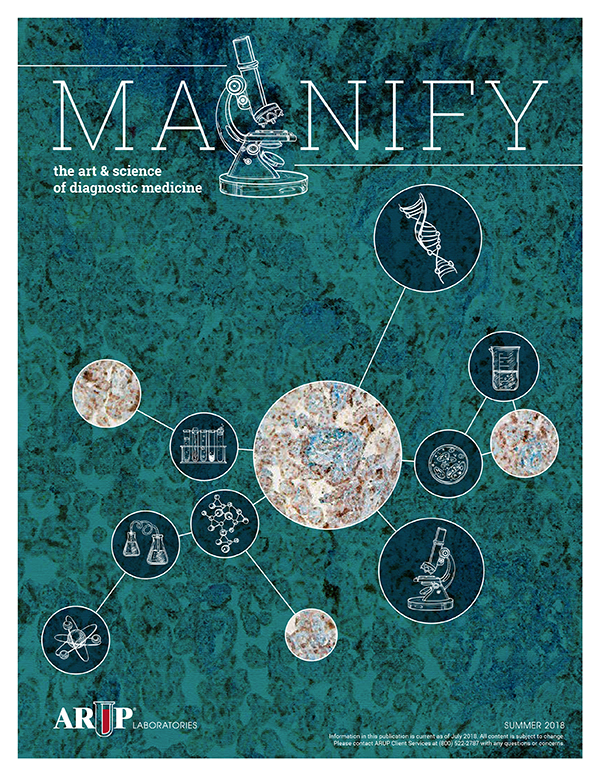Waseem Anani: Medical Director Pushes Boundaries of Immunohematology Testing to Meet a Growing Health System’s Needs
Before Waseem Anani, MD, became an immunohematologist, he was an undergraduate studying geology and anthropology, with his heart set on graduate school. He had an eye for the heuristic and an interest in exploring how small subtleties might hold the key to solving big problems. To some, his decision to attend medical school was a sudden redirect, but to Anani, it was a once-in-a-lifetime opportunity to investigate some of the biggest and most important mysteries of our time.
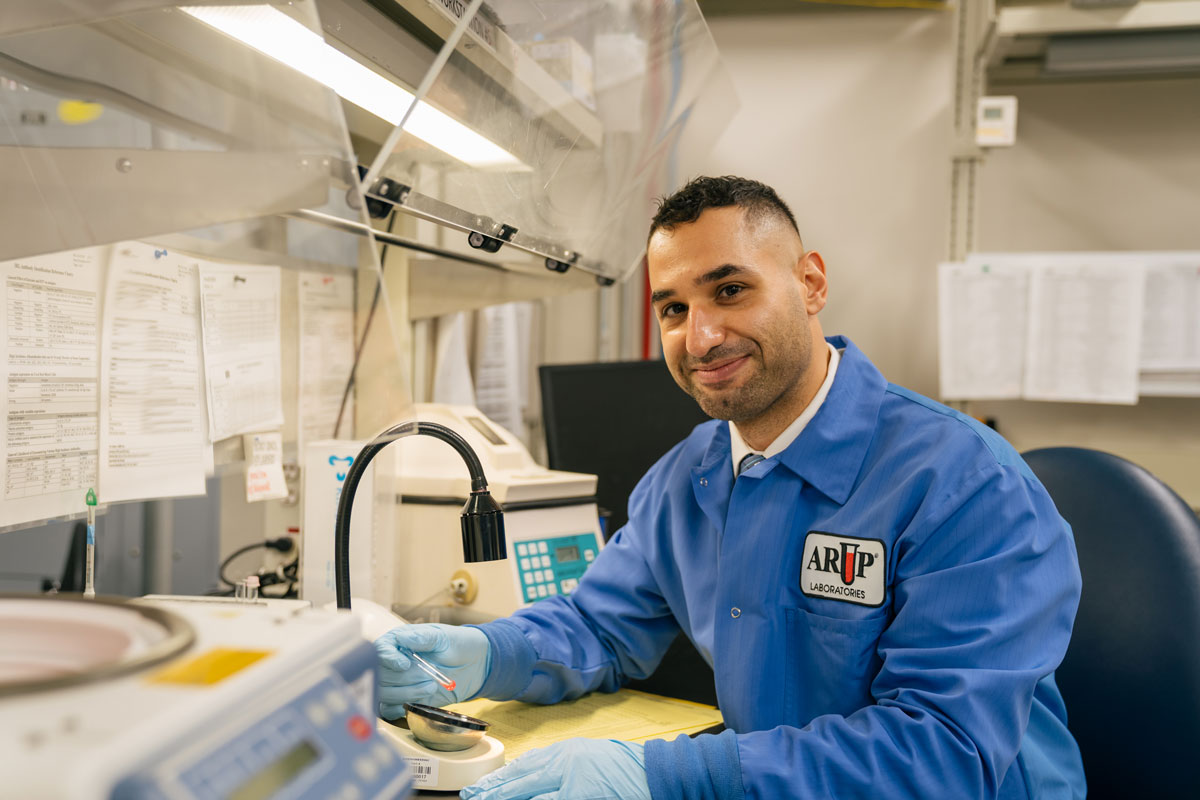
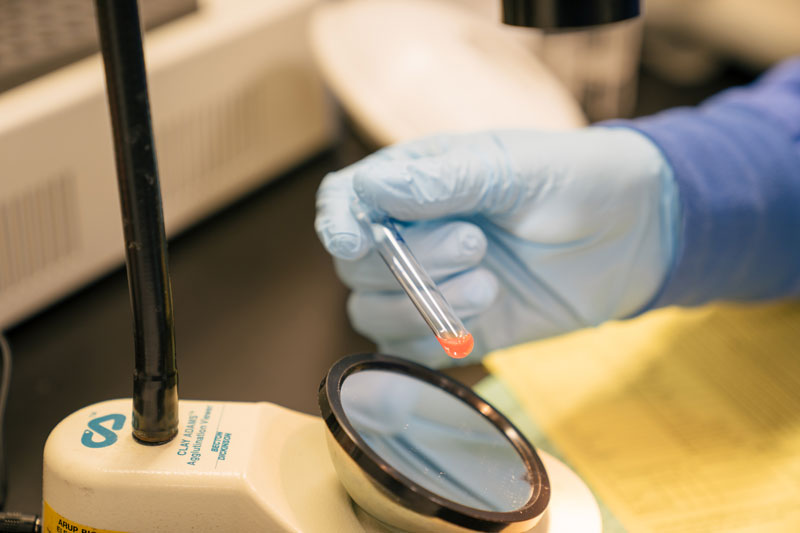
Before Waseem Anani, MD, became an immunohematologist, he was an undergraduate studying geology and anthropology, with his heart set on graduate school. He had an eye for the heuristic and an interest in exploring how small subtleties might hold the key to solving big problems. To some, his decision to attend medical school was a sudden redirect, but to Anani, it was a once-in-a-lifetime opportunity to investigate some of the biggest and most important mysteries of our time.
Anani believes his undergraduate studies helped him think outside the box. Immunohematology requires a sort of detective mindset and the ability to combine bits of patient information to complete a bigger picture.
“In immunohematology, you have the tools, but it’s your choice to use them in whatever way it takes to find the right answer. You must interpret every step you do … that’s why I love it,” Anani said. “It is like detective work; the only difference is, you’re producing your own clues.”
Now, as the new medical director of ARUP Blood Services and the Immunohematology Reference Lab (IRL), Anani is laser focused on optimizing the collection and use of lifesaving blood products for the growing University of Utah Health system. It’s expected that the additions of the Kathryn F. Kirk Center for Comprehensive Cancer Care and Women’s Cancers in 2023 and the West Valley Health and Community Center in late 2026 or early 2027 could nearly double the system’s total blood use. Since beginning his tenure in July 2022, Anani has worked to increase blood collection, make donation more inclusive, and further develop ARUP’s menu of immunohematology testing.
Anani’s ability to solve the puzzles of rare and unique blood using ARUP’s tests sets him apart as he aims to help ARUP cement its position as a center of immunohematology testing in the western United States. He saw an opportunity to expand ARUP’s test offerings after the closure of an influential American Red Cross laboratory left a gap in the West’s rare blood testing labs.
Anani spends his days with his colleagues on the bench, developing new tests and improving methods for detecting antibodies. One new test, an extended direct antiglobulin test (DAT), improves on the DAT offered by most hospitals and blood banks. ARUP’s test, Anani said, will look for immunoglobulin A (IgA) antibodies not detected by most labs and use more sensitive methods (4°C low ionic strength saline wash) to detect weak antibodies.
“I want to build esoteric testing, and with that comes the opportunity for unique publications [to enrich our knowledge] and samples from around the world,” Anani said. “It will challenge us to grow, and that is the exciting part of it. We all get to build something newer and bigger.”
The Path to a Perfect Fit
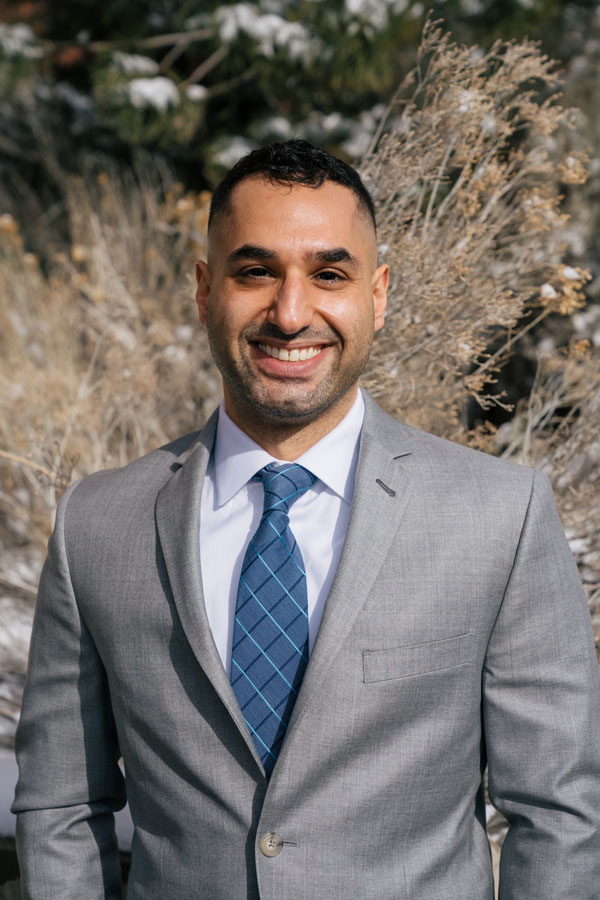
After earning his medical degree from Penn State College of Medicine, Anani’s propensity for the detailed fact-finding he pursued as an undergraduate led him to his residency at the University of Pittsburgh Medical Center (UPMC), where he fell in love with clinical pathology.
Pittsburg is a powerhouse for transfusion medicine, Anani said, and after developing an interest in blood services, he decided to pursue training in transfusion medicine at the renowned Blood Center of Wisconsin. During his fellowship, he trained under his mentor, Gregory Denomme, PhD, in Wisconsin’s IRL, studying rare blood samples from around the world. Now, he is one of a small number of physician immunohematologists in the country.
Before starting at ARUP, Anani was medical officer at the Canadian Blood Service’s National Immunohematology Reference Laboratory in Ontario, where he oversaw 70% of the country’s total blood supply. From 2020 to 2022, Anani developed unique expertise in blood collection, testing, and processing, and he began identifying new opportunities for donor optimization and engagement.
At the same time, Ryan Metcalf, MD, CQA(ASQ), section chief of Transfusion Medicine and director of the Transfusion Service at ARUP and University of Utah Health, was thinking about how he could adapt the Transfusion Service and other areas of the Transfusion Medicine section to meet the needs of an expanding health system. It made sense, he said, to start thinking about who would be the next medical director dedicated to blood collection at ARUP.
Additionally, the complex testing performed in the IRL allows ARUP to produce personalized products for patients from a broad geographic area whose rare or unique antibodies make it challenging to find safe blood for transfusions.
“This is an area where we could expand our overall presence and provide value to patients across the country,” Metcalf said.
Anani was uniquely positioned to become ARUP’s new medical director. He had the blood services experience, testing expertise, and passion for immunohematology needed to expand ARUP’s ability to provide more lifesaving blood products and push the envelope on testing.
“I’m very happy with how quickly he’s learning our system and bringing in new ideas. He’s taking initiative and doing things in a very hands-on way,” Metcalf said. “He’s taking his enthusiasm and applying it to practice … having Waseem here will only help us to further advance what we do.”
Adapting to a Rapidly Expanding Health System
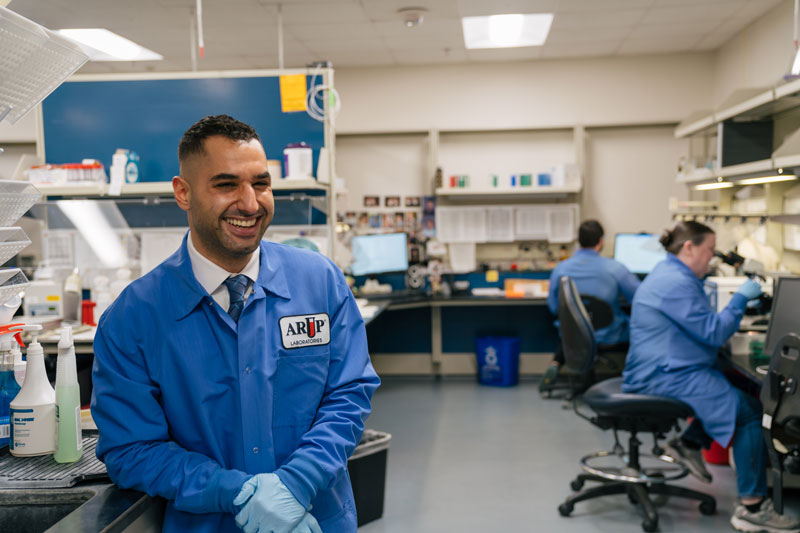
As the sole provider of blood products to U of U Health, Blood Services forms a direct link between ARUP, the U hospitals and clinics, and the patients they serve.
“To keep the business partnership positive, it’s important for ARUP, and the university, to keep Transfusion Medicine moving forward,” Anani said. “The leaner we run, the less money we lose, and it’s my job to optimize the blood supply side of Transfusion Medicine at ARUP.”
Anani has led a number of projects to optimize how ARUP makes and collects critical blood products such as cryoprecipitate, a byproduct of plasma collection that is used to treat blood clotting in patients with serious or rare conditions. Now, 50% of the cryoprecipitate previously purchased from outside suppliers can be made in-house, in less time, and with fewer blood products, meaning that more plasma is available for patients at a fraction of the cost.
Additionally, Anani’s vision for donor optimization and engagement will play a key role in adapting ARUP’s blood supply for the growing demands of the U of U Health system. In collaboration with Metcalf, Anani and the ARUP Blood Services team have been working to update donor guidelines and to retain, recruit, and reengage previously deferred donors in a new way.
In May 2022, the U.S. Food and Drug Administration (FDA) made a long-awaited update to its blood donation guidelines to allow individuals who lived or worked in the United Kingdom from 1980–1996 to donate blood. Previously, these individuals were prevented from donating due to concerns they could transmit variant Creutzfeldt-Jakob disease, or mad cow disease. Following the FDA update, Anani went back and looked at every prospective donor who was deferred because of the former guidelines. He identified 197 individuals who were deferred in the past two years and sent hand-signed letters inviting them to return. Shortly after, ARUP Blood Services began receiving phone calls from individuals across the state, asking if they could return and donate.
ARUP Blood Services is focused on expanding donor eligibility by more closely aligning with FDA guidelines, Anani said. Reaching, educating, and retaining donors through personalized letters, phone calls, social media outreach, and new advisories is a top priority.
During the next few years, Anani predicts that 30% of donors who were deferred could return to donate blood. Moreover, he anticipates changes to FDA donation guidelines for individuals with cardiac disease and gay and bisexual men could further increase the percentage of returning donors.
“We tend to treat our donors differently than other blood suppliers,” Anani said. “Our staff works hard to form relationships with our donors, so when they come in, they feel like they’re family.”
Anani’s ability to turn small subtleties—such as a handwritten letter—into impactful solutions has invigorated ARUP Blood Services and the IRL. With the help of his team, Anani has strengthened ARUP’s ability to provide lifesaving blood products now and in the future. His teammates’ support, Anani said, has provided the greatest tailwind for achieving his goals for Blood Services and the IRL.
“They were willing to embrace rapid change and roll with it,” Anani said. “This is a huge undertaking, and yet they’ve committed to these changes because it’s better for donors, and it’s in line with ARUP’s core values, which, to me, are something that we need to live.”

